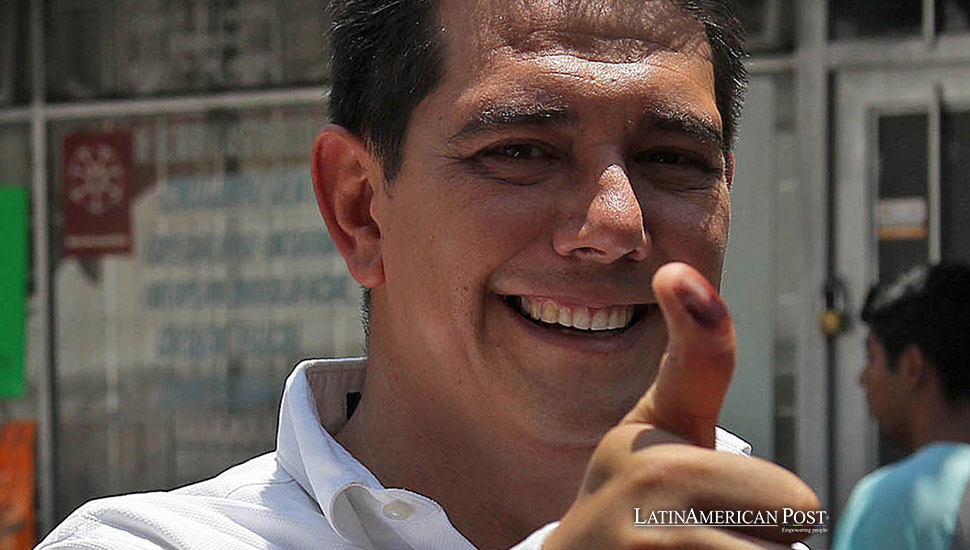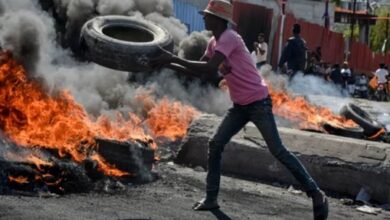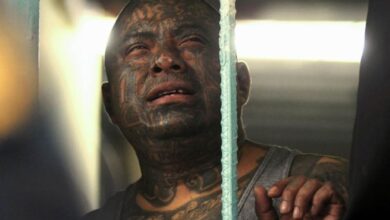Violence Threatens to Erode Mexico’s Democracy Beyond Repair

Mexico’s struggle with violence, particularly the drug-fueled killings of public officials, signals that democracy in the country is nearing a breaking point. As violence escalates, the democratic ideals cherished by many risk becoming illusions.
A Mayor’s Murder Is New Normal in Mexico
The brutal murder of Alejandro Arcos, the newly elected mayor of Chilpancingo, Guerrero, is more than just another tragic headline. It is a stark reminder of the reality that many Mexican politicians, particularly at the local level, face every day. Within a week of taking office, Arcos was found dead, his body discarded like a symbol of the contempt drug cartels have for those who stand in their way. Only days earlier, his secretary, Francisco Tapia, was gunned down in yet another act of violence targeting officials.
The state governor, Evelyn Salgado, expressed the collective grief of Chilpancingo’s citizens, but her words do little to change the fact that this incident is just one of many. Guerrero has long been one of the most violence-plagued states in Mexico, caught in the crosshairs of cartel warfare. The toll that this violence takes on governance is staggering; when politicians can be killed so soon after taking office, it sends a clear message that public service is a dangerous, even fatal, endeavor in parts of Mexico.
But the problem goes deeper. Guerrero’s systemic violence underscores the frailty of Mexico’s democratic institutions. When elected officials are murdered with impunity, the very notion of democracy – that citizens can choose their leaders and those leaders can act in their best interest – begins to unravel. How can public officials serve their communities when they must first fear for their lives?
Political Violence and the Drug Trade: A Deadly Mix
Alejandro Arcos’s death is not an isolated incident. Guerrero, positioned along key Pacific coast smuggling routes, has long been a battleground for control between rival drug gangs. The Ardillos and the Tlacos, the two primary groups in the area, engage in turf wars that spill over into the political arena, killing officials who refuse to bend to their influence or who stand in the way of their operations.
This lethal mix of politics and the drug trade has made local elections in states like Guerrero a dangerous gamble. In the lead-up to Mexico’s June 2 elections, six candidates for public office were assassinated in the state alone. Nationwide, cartels are responsible for the deaths of dozens of politicians every year. For every official that is killed, countless others face daily threats, making it difficult for them to govern effectively or even to implement essential public services.
The roots of this violence can be traced back to 2006 when the Mexican government deployed the army to combat the country’s drug cartels. Rather than quelling the violence, the war on drugs escalated it, pushing cartels into more aggressive and brutal tactics. Over 450,000 people have been murdered since, and tens of thousands have disappeared. This militarized response has not only failed to contain the violence, but it has also allowed it to seep into every level of government, eroding the trust between citizens and the state.
Democratic Ideals Under Siege
As the body count rises, so does the threat to democracy. Mexico’s democratic institutions, theoretically designed to give power to the people, are being crippled by the pervasive influence of the cartels. When public servants can be murdered for trying to do their jobs, democracy itself is at risk. Elected leaders, fearful of retaliation, may begin to bow to the demands of criminal organizations, compromising their ability to govern in the public interest.
The case of Guerrero is particularly illustrative of how entrenched this violence has become. Local officials have called on the federal government to intervene, arguing that the state’s level of ungovernability requires a national response. Yet, even at the federal level, there is limited capacity to rein in the cartels’ power. President Andrés Manuel López Obrador’s strategy of “hugs, not bullets,” meant to reduce violence through social programs and a non-confrontational approach, has done little to curb the bloodshed. The violence has continued unabated, with cartels retaining control over vast swaths of territory, often outmatching local law enforcement.
This is where the fragility of Mexico’s democracy becomes most apparent. In regions like Guerrero, democracy exists in name only, with little of its practice remaining. Citizens vote, but their elected leaders are unable to enact meaningful change. Corruption, fear, and violence undermine the foundation of democratic governance, creating a system where power is held by those who control the streets, not by those who hold office.
If democracy is meant to represent the will of the people, what happens when bullets silence the people’s representatives? The answer is that democracy, in its ideal form, becomes a distant memory, overshadowed by the grim reality of survival in a cartel-dominated state.
Can Mexico Recover from This Crisis?
The murder of Alejandro Arcos raises a question that many in Mexico have been asking for years: Can democracy survive in a country where violence is so pervasive? The answer is not clear. What is clear, however, is that the current trajectory is unsustainable. If public officials continue to be murdered with impunity, the democratic system in Mexico risks collapsing under the weight of violence and corruption.
To restore faith in democracy, Mexico must confront its systemic issues head-on. First, there must be a concerted effort to combat the corruption that allows cartels to operate with relative impunity. This means not only cracking down on drug trafficking but also addressing the political and economic structures that enable cartels to flourish. Without fundamental reform, any attempts to curb the violence will be superficial.
Second, Mexico must protect its public servants. The assassination of politicians cannot become the norm. If local officials continue to be murdered, there will be fewer and fewer candidates willing to risk their lives to serve their communities. The federal government must protect vulnerable officials, particularly in high-risk areas like Guerrero. More resources need to be allocated to law enforcement, not just to combat cartels but also to ensure that public officials can perform their duties without fear of assassination.
Finally, Mexico must rebuild trust between its citizens and its government. This will not be easy. Decades of violence, corruption, and impunity have created a deep sense of distrust. Citizens must see that their government can protect them and their elected leaders. Without this trust, democracy cannot function.
The road to recovery will be long and difficult. However, the alternative is far worse. If the violence continues unchecked, Mexico risks becoming a failed state where democracy is reduced to an ideal rather than a practice. Alejandro Arcos’s murder is a tragic reminder of what is at stake. The time for action is now before Mexico’s democracy slips beyond the point of no return.
Also read: Violence’s Hidden Impact on Business Growth in Mexico
The murder of Alejandro Arcos highlights the severe challenges facing Mexico’s democracy. As violence and corruption undermine the political system, the risk of democratic ideals becoming mere illusions is ever-present. The only way forward is through bold action, reform, and a commitment to protecting both public officials and the democratic process itself.





